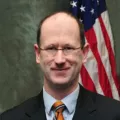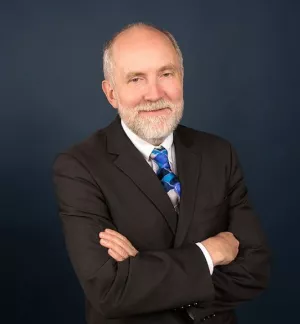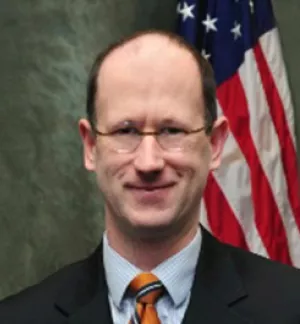This month's hostage tragedy in Russia is a stark reminder of the potent terrorist threat that country still faces -- a threat that could result in a nuclear Sept. 11 if terrorists manage to gain access to Russia's nuclear stockpiles.
Unfortunately, the recent claim by Russian Defense Minister Sergei Ivanov that inadequately secured nuclear stockpiles in Russia are only a "myth" is far from the truth. There has been a decade of improvements in Russia, but the work remains dangerously incomplete and the threat to nuclear facilities is terrifyingly high. While many of the best-known thefts of nuclear material occurred a decade ago, it was only last year that the chief of Russia's nuclear agency testified that nuclear security was underfunded by hundreds of millions of dollars. At nearly every site U.S. experts visit, they reach quick agreement with Russian experts on the need for substantial security upgrades. Russia's decision to send additional troops to guard nuclear facilities in the wake of the most recent terrorist attacks belies the notion that these facilities were adequately secured before. Moreover, that heightened troop presence is not likely to last and will do little to reduce the danger of theft by insiders.
Meanwhile, terrorists are zeroing in on these nuclear stockpiles. Top Russian officials have confirmed at least two cases in 2001 of terrorists carrying out reconnaissance at Russian nuclear warhead storage sites. The 41 heavily armed, suicidal terrorists who seized hundreds of hostages at a Moscow theater in 2002 reportedly considered seizing the Kurchatov Institute instead -- a site with enough highly enriched uranium (HEU) for dozens of nuclear weapons. In 2003 proceedings in a Russian criminal case revealed that a Russian businessman had been offering $750,000 for stolen weapon-grade plutonium for sale to a foreign client. Al Qaeda has been actively seeking nuclear material for a bomb and has strong connections to Chechen terrorist groups.
Comprehensive U.S.-funded security upgrades have been completed for only 22 percent of Russia's potential nuclear bomb material; upgrades for tens of thousands of bombs' worth of material are still incomplete. Disputes over access to sensitive sites, liability, and other bureaucratic and political obstacles have been allowed to stymie progress for years.
This is a global problem. More than 130 research reactors in dozens of countries still operate with HEU fuel, and many have no more security than a night watchman and a chain-link fence. Pakistan's heavily guarded nuclear stockpiles face huge threats, from both insiders and outsiders, including large remnants of al Qaeda and the Taliban in the country.
The good news is that this is a solvable problem. Plutonium and HEU -- the essential ingredients of nuclear weapons -- are too difficult for terrorists to make. If the world's stockpiles can be locked down and kept out of terrorist hands, nuclear terrorism can be prevented.
Many of the needed programs are in place. In addition to continuing efforts to secure Russia's stockpiles, the administration has been exploring similar cooperation with Pakistan and others -- and Energy Secretary Spencer Abraham has just launched a Global Threat Reduction Initiative (GTRI) designed to remove potential bomb material entirely from the world's most vulnerable sites rapidly.
Three steps are urgently needed if the world is to win the race to lock down these stockpiles before the terrorists get to them.
First, it will be crucial to implement GTRI as quickly, flexibly and comprehensively as possible -- with a target of removing potential bomb material from the world's highest-risk facilities within four years. Congress should give Abraham both the explicit and flexible authority and the additional funds he needs.
Second, the United States and Russia must drastically accelerate their efforts to secure Russia's stockpiles. The next U.S.-Russian summit should focus on agreements to sweep aside bureaucratic and political obstacles and set an agreed deadline for getting the job done. President Bush needs to make clear to Russian President Vladimir Putin that locking down these stockpiles quickly and permanently is central to U.S.-Russian relations and to Russia's own security.
Third, the United States must expand the security upgrade effort to the rest of the world, forming a fast-paced global partnership to quickly lock down all the vulnerable nuclear caches that cannot simply be removed or eliminated.
Making all this happen will require a sea change in the level of sustained White House leadership, no matter who is president. A full-time senior official is needed -- one who has the president's ear -- to lead the myriad efforts in many agencies meant to block the terrorist pathway to the bomb. This official must also keep the issue on the front burner at the White House day in and day out. Only then will we have done all we should to reduce the risk of a nuclear Sept. 11.
Matthew Bunn and Anthony Wier, of the Managing the Atom Project at Harvard University's Kennedy School of Government, are co-authors of "Securing the Bomb: An Agenda for Action." Bunn worked on programs to secure nuclear materials in the Clinton administration, and Wier helped to develop budgets for some of these programs in the Clinton and current Bush administrations.
Bunn, Matthew and Anthony Wier. “Preventing a Nuclear 9/11.” The Washington Post, September 13, 2004




